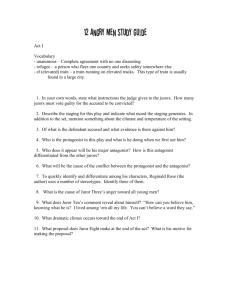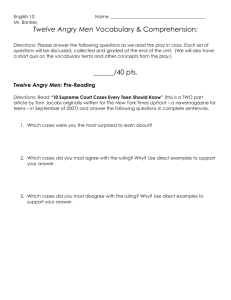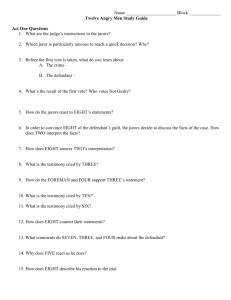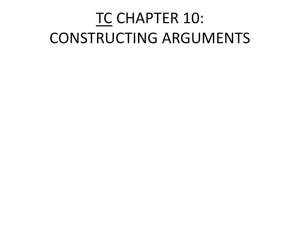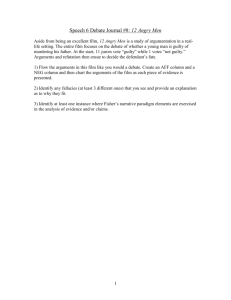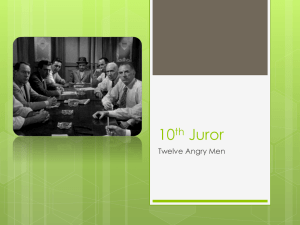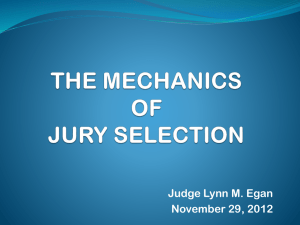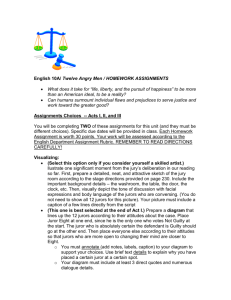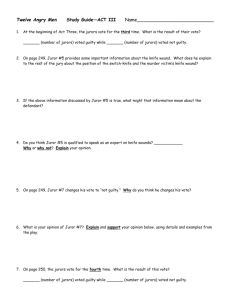Act One Homework Questions – Twelve Angry Men
advertisement
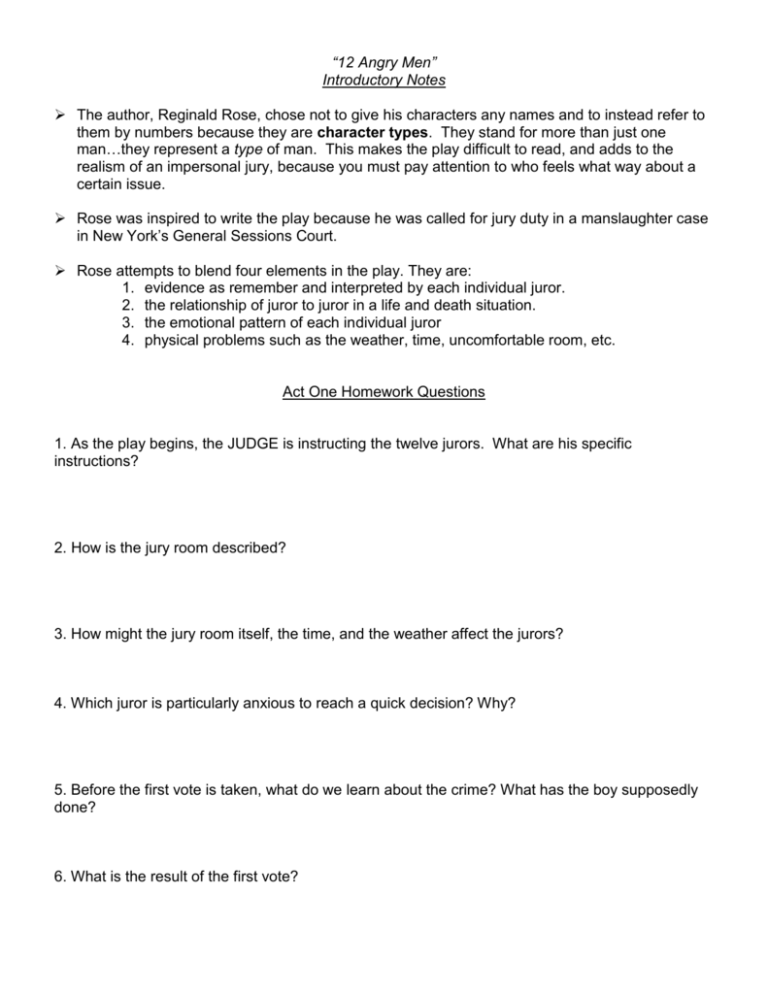
“12 Angry Men” Introductory Notes The author, Reginald Rose, chose not to give his characters any names and to instead refer to them by numbers because they are character types. They stand for more than just one man…they represent a type of man. This makes the play difficult to read, and adds to the realism of an impersonal jury, because you must pay attention to who feels what way about a certain issue. Rose was inspired to write the play because he was called for jury duty in a manslaughter case in New York’s General Sessions Court. Rose attempts to blend four elements in the play. They are: 1. evidence as remember and interpreted by each individual juror. 2. the relationship of juror to juror in a life and death situation. 3. the emotional pattern of each individual juror 4. physical problems such as the weather, time, uncomfortable room, etc. Act One Homework Questions 1. As the play begins, the JUDGE is instructing the twelve jurors. What are his specific instructions? 2. How is the jury room described? 3. How might the jury room itself, the time, and the weather affect the jurors? 4. Which juror is particularly anxious to reach a quick decision? Why? 5. Before the first vote is taken, what do we learn about the crime? What has the boy supposedly done? 6. What is the result of the first vote? 7. Why does EIGHT say he voted not guilty? 8. How do the other jurors react to EIGHT’s statements? 9. In order to convince EIGHT of the defendant’s guilt, the jurors decide to discuss the fact of the case. What information do the jurors present about the case that make them think the boy is guilty? 10. What comments do SEVEN, THREE, and FOUR make about the defendant? Do their comments pertain to the facts of the case? Why does FIVE react as he does? 11. What does EIGHT say bothered him about the boy’s trial? 12. Why is the switch-knife an important piece of evidence? What was the defendant’s testimony about the switch knife? 13. What is the dramatic climax (that is, the point of most intense excitement) of Act One? How do the jurors react to this incident? What does EIGHT prove by his actions? What does this incident reveal about EIGHT’s motives? 14. What proposition does EIGHT make to his fellow jurors? What is the outcome? Act Two Homework Questions 1. How does the result of the second vote create a conflict between juror THREE and jurors ELEVEN, FIVE, and NINE? 2. What evidence does EIGHT offer to discredit the old man’s testimony? What is the connection between the el train’s noise and the old man’s testimony? 3. What is the significance of TEN’s comment that the defendant “don’t even speak good English?” How does ELEVEN respond? Is this comment consistent with TEN’s previous behavior? 4. What does FIVE do at this point in the play? 5. What are the results of EIGHT’s timed experiment? 6. What does THREE say to EIGHT at the end of Act Two? How does this contradict what he said earlier? Act Three Homework Questions 1. In the beginning of Act Three, the jurors vote for the third time. What is the result of the third vote? Which jurors have changed their votes? 2. FIVE provides information that discounts an important piece of testimony. What information does FIVE provide? Is he qualified to speak as an expert? Why or why not? 3. What is the result of the fourth vote? 4. How do the other jurors react to TEN’s statement of his true feelings? 5. Why does FOUR feel that he still cannot vote for acquittal? What significant observation does SIX make at this point? 6. As the play draws to its close, THREE stands alone in his conviction that the boy is guilty. Do you think THREE was pressured into agreeing with the majority? 7. Did the jury prove that the defendant was not guilty? How so?

